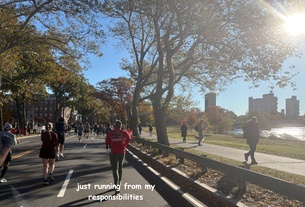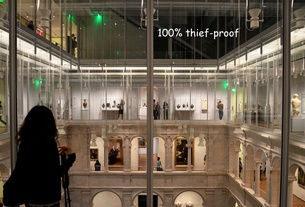Class of 1985
Dudley Celebrates Fifty Years
In 1985, Dudley celebrated its 50th anniversary. According to an introductory letter written in 1985 by the chairs of the House to commemorate the event, “The anniversary year is a special time for Dudley—it gives us the opportunity to glance back and to look forward in time.”
Locked Up: CUE Editors Claim The Administration Censored Their Content
Although Okun emphasized that the editors were committed to accurately reflecting student opinions in their write-ups, Harvard administrators demanded changes to the contents of the 1985 CUE Guide that would ultimately alter the administration of course evaluations and the interactions of faculty and students within the larger University community.
Expos Revised: Addressing Varied Writing Skill Levels
According to The Crimson’s 1985 coverage of this expos class—then called Expos 5 but now known to students as Expos 10—writing program officials intended it to give some students for whom English is a second language, as well as students with significantly weaker writing backgrounds additional instruction to prepare them for college-level writing.
Plugged In: Computers In Class
Almost overnight, advertising on the Harvard campus went digital. After the arrival of the first Macintosh computers, written notices were suddenly replaced with word-processed posters as student groups gained access to desktop publishing.
Japanese Princess Bridges Cultures
Owada, whose father has served as a senior diplomat and President of the International Court of Justice, has spent her life—academically, professionally, and personally—dedicated to both the international community and Japan’s role in it.
The Conan We Knew
From running the Lampoon to hosting The Tonight Show, there are things about O’Brien that have never changed.
Kevin Jennings ’85: Leading the Way for Gay Rights
Jennings said that his difficult childhood and a challenging experience at Harvard shaped the way he thinks about education.
Professor Under Fire
In the mid-1970s, a congressional investigation discovered that the Central Intelligence Agency was covertly funding hundreds of academic research projects—notably books—in the United States and abroad in order to counter Soviet propaganda efforts.
Harvard Resists Reagan’s ’85 Budget
The winds of budgetary change rippled menacingly after the Reagan Administration proposed cuts to federal financial aid and research funding for scientists.
Students and Faculty Fight for Women’s Studies
In 1985, the Committee—chaired by current Comparative Literature Professor Susan R. Suleiman—began to flesh out a new concentration proposal that required faculty approval.
Students Protest Apartheid
In the climate of persistent student protests, Harvard eventually divested from South Africa—only partially—and thereafter inaugurated a new policy: The University would not invest in any companies that did more than 50 percent of their business in South Africa.
To Randomize Or Not To Randomize?
Although the class of 1985 may not have implemented a change in the residential housing program, its debates—the first large-scale discussions on the topic—would come to inform and prepare the College for the randomization of the housing selection system.
The Changing Face of The Square
Over the past 25 years, Harvard Square has faced tension between maintaining the Square’s historically eclectic vibes and the demands of a modern economy.
Open Gate Policy
It is a year too late, but not so late that we should overlook the College's decision this week to open the gates of the Fly Club Garden.
Our Turn
One of the main reactions of students at Harvard to a ban on underage drinking has been dismay.










